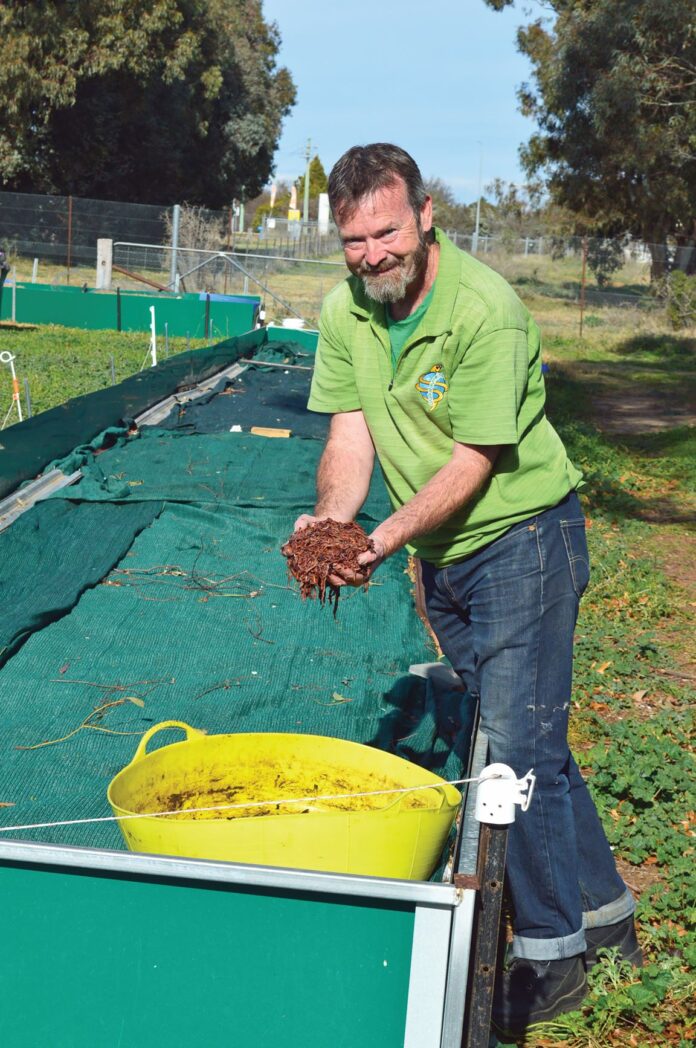Meet Cid Riley, worm farmer extraordinaire and proprietor of local business Global Worming. Cid has always had an interest in worms, having owned his first worm farm at the age of 11. He is passionate about minimising food waste and doing it sustainably and, with an earlier career in economics, considers himself the world’s first ‘vermi-conomist’.
Cid began collecting food waste and trialling composting with worms from a Canberra business in 2004 – a relatively new concept at the time. His mission: demonstrating that worm farms can be clean, tidy and smell free, and also what can be achieved on the sustainability front.
Global Worming became a fulltime affair in 2012 and now includes sites in Tarago, Fairbairn and Canberra City Farm in Fyshwick. Today Cid has 50 clients including businesses, schools and government departments. This equates to a staggering 200,000 wriggly employees and 10 tonnes per week of food waste saved from landfill, 52 weeks of the year!
Global Worming is as much about education and reducing food waste as it is a way to make a living. Consequently, Cid leases farms out, a service which includes assistance with the setup, maintenance and harvesting of worm castings and tea. Schools are also wowed with interactive talks about everything worm.
Handy worm tidbits:
- Worms have a brain, five hearts and are hermaphrodites. Cid said he observes worms communicating with one another – to keep safe, for instance.
- Worm farms need to be well insulated and appropriately located (sunny in winter, full shade in summer).
- When starting your worm farm, include a generous layer of carbon ingredients in the base. Cid suggests one-part cocoa peat, one-part shredded newspaper (pre-soaked in water) and one-part worm castings or home compost.
- Fill one half of your farm with scraps at a time; this way if there are any toxicity issues, the worms can escape to the other side.
- Before feeding your worms once each week, scrape the existing non-food side of your farm to check for ideal moisture and no rotting bits, before adding food.
- If worms are starved of food, they reduce their size to compensate; they also assess food volume and breed accordingly.
- Harvesting castings and/or worms: Exposing worms to vibration or light causes them to congregate at the bottom of the farm. Gradually peel castings off the top until only worms remain.
- Making worm tea: In a bucket, put 10-parts worm castings in a stocking to one-part water. Let soak for a few days and give a stir occasionally. Remove stocking and use castings in your garden. Dilute one-part tea concentrate to 10-parts water.
More info: [email protected]
For more:









